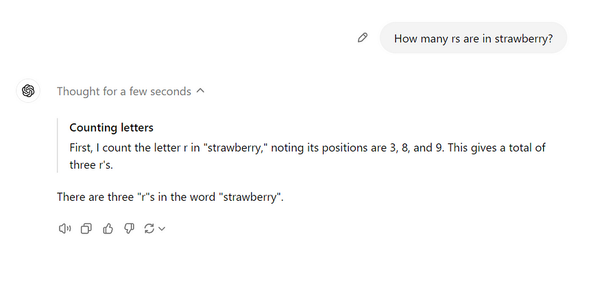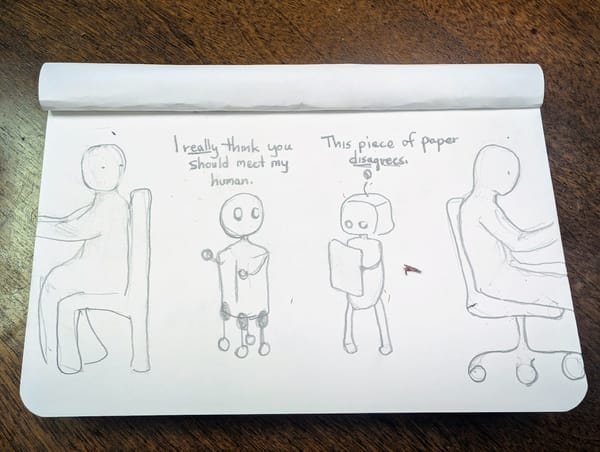A brief history of work: The Gig Economy and freelance labor

Maybe a gig marketplace based on Victorian-era piecework wasn’t the right strategy for a global economy.
For a long time, really the longest time, the average person hunted, gathered, or farmed. Still today, some communities spend most of their time growing food — and there’s always the homesteaders on TikTok, who farm nothing but goats and sunflowers, and furtively purchase groceries from Whole Foods.
As we enter the latest stage of late-stage capitalism (final stage capitalism? end boss capitalism?), it’s worth it to consider our relationship to work. And, like all relationships, that begins with a history.
The future of work will be as bleak as we allow it to be. Work for good companies. Work with good people. Vote with dollars, if you think that will work. Vote with bricks, if it doesn’t.

Religion, war, and agriculture
Turn back time 500 years. Throughout most of human history, people had a handful of jobs. You were a homesteader, a soldier, or clergy. As the idea of specialized work arose, trades remained clustered around these fundamental things: a seamstress making clothes from wool or a blacksmith making weapons of war. But primarily, you cared for human needs, whether the need to be fed, be alive, or feel a little more secure in your place in the universe.
Society evolves. It gains complexity. We develop entirely new industries. And the relationship that people have with work vastly changes. Suddenly, our work is no longer connected to fundamentally improving the lives of ourselves, our families, and our neighbors.
Instead, it’s for the betterment of the corporation.
Big dreams, big things — big costs
People have an innate need to cooperate, to build great and big things. A single person couldn’t sail across pitch-black seas to new worlds across the horizon; a single person couldn’t reach the lonely moon across the cosmic divide.
But with this desire for ever-increasing expansion comes a cost.
As society became more complex, our jobs became complex, all-consuming, and abstract. Suddenly, people worked 80-hour work weeks. Children labored through the night, struggling to feed their families. Men were sent into mines, dying together in the darkness. Women were consumed by fires, locked next to their workstations.
Let’s just say the Industrial Era was a “learning period” for us all.
Except…
Did we learn?

Piecework in the new era
Before we developed any form of worker protection, workers were completely at the whims of their employers. Before the industrial age, one method employers used to disenfranchise workers was piecework — the Victorian predecessor to sweatshop labor.
Under piecework, individuals were not paid a salary but rather paid by “piece” of their labor. A seamstress might be paid by the coat. Unlike a blacksmith or truly independent tradesperson, these pieceworkers were not in control of what they produced, their rates, or what they were paid.
A corporation, of course, built its reputation and capital on its labor. But the individual pieceworker would never share in that. We often point to this as a broader problem of capitalism, but it’s directly analogous to the gig economy of today.
Gig work is a type of freelance work. But it’s freelance work predicated upon producing a specific type of product for an organization that relies upon that product, with few other avenues for monetizing your skill set. A true freelancer is their own company; a gig worker still relies on a specific company to purchase the product of their labor.
And while statistically, most freelancers make more money than employed individuals, they also work much more, and their total compensation is lower, bereft of benefits. In the United States, all this is exacerbated by a culture that provides few safety nets.
Grab that sigma grindset and become a girl boss
You’re living in the year 2025. You wake up at 8 AM and sign in to Instacart, DoorDash, Amazon Jobs, and Walk My Terrible Goddamn Dog. At 10 AM, you get a ping: $25 to walk eighteen chihuahuas up and down Main for an hour.
You eagerly grab it; after all, it’s only two hours away. But it takes a little longer because you pick up a DoorDash and Instacart delivery on the way.
Six hours and one urgent care visit later, you get another ping: the Amazon Warehouse desperately needs workers for exactly 48 minutes. You take the 30-minute commute, work for 60 minutes, and get paid for 30. You file a complaint; you’ll hear back in 30 to 90 business days.
On your way home from the Amazon Warehouse, you get an account alert. You were late to that dog-walking job because of those DoorDash and Instacart deliveries — and unfortunately, that tanked your metrics. Your account is automatically closed.
It’s now 7:00 PM. You’ve made $65 and spent approximately three hundred million on gas.
Gig work is a race to the bottom. It’s low-paid and unstable — and conveys no long-term benefits. As an additional bonus, it’s taking many freelance fields with it, as those who used to contract for jobs are now moving toward gig marketplaces. Altogether, this is part of an overarching campaign continuously evaporating workers’ rights.
It’s every woman, non-binary, man, and corporation for themselves
Gig workers and freelancers are independent contractors. Traditionally, “independent contractor” meant a lawyer, electrician, accountant, plumber, or other trade professional: independent and often relatively comfortable consultants hired by companies for discrete projects.
Because of that, an independent contractor is treated much like a business. They can be paid any rate they agree to and can be terminated at any time their contract allows. They have no right to benefits.
The IRS is pretty strict on what constitutes an independent contractor. A company cannot hire independent contractors and treat them as employees — not legally. But because entire industries are changing simultaneously, regulatory laws have been left scrambling.
Gig work is just piecework under a rebrand. Companies are entirely in control of the work product, how it’s produced, and what it costs — gig workers are beholden to them.
More than that, companies can pull the plug at any time; a gig worker who has worked with a company for eight years and contributed immeasurably to the company’s success can be exited without any recourse.
Exploitation disguised as empowerment
And that’s where we need to get down to it: Gig work is billed as a way to make easy money “without having a boss.” It’s billed as being in charge of your fate. You work when you want to work. You spend time with your family (as long as your family is OK with spending sixteen hours a day in a car).
Companies make money. They make a lot of money — they’re making a lot of money right now during an omnipresent financial collapse. The contract between employer and employee was straightforward: the employee gave up their time, effort, and work product to their employer so that the employer could make a profit. The employer, in turn, gave the employee certain benefits: regular pay and regular hours.
We are currently in a situation that is even worse than the prior decades— because now, employees don’t even benefit from reliable payments. They don’t have the peace-of-mind knowing that they will have a job tomorrow. They are asked to give everything and reap nothing.
Coming soon to a tax bill near you
Would it surprise you that 70% of the people on food stamps work full-time?
Ultimately, when people cannot make enough to survive, it is subsidized — by all of us. Companies like Walmart and McDonald’s don’t pay employees enough to survive but still take up all their time — so everyone pays for corporate profits. When a gig worker cannot pay for health insurance, we all pay.
But it’s not the gig worker profiting from this exchange: It’s the corporation. We are providing benefits so the corporation can make a profit.
Already, we see traditionally salaried jobs move to freelance contract positions — and traditionally freelance contract positions move to gig work. As long as this benefits companies, this will not stop. A company that can pay a gig worker $25 for a WordPress website will do so — and that will impact the freelance contractor who develops for WordPress and the salaried worker who works on LAMP stacks.
The future of work doesn’t have to be bleak. Work can be something that people delight in and enjoy — something that truly benefits them, their family, and their community. But the future of work will be as bleak as we allow it to be.
Work for good companies. Work with good people. Vote with dollars, if you think that will work. Vote with bricks, if it doesn’t.




